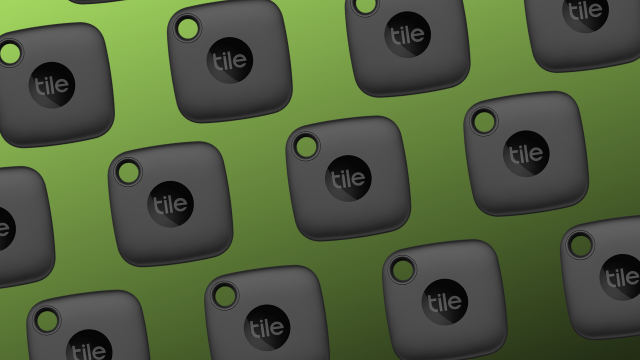After months of reports of Bluetooth tracking devices like Apple’s AirTags being used to stalk people for miles, one of the first companies to popularise these trackers, Tile, is adding a feature that will make its devices “undetectable” to the company’s own app that scans for nearby unwanted devices.
Oh no, of course the company isn’t just letting all its users toss a tracker in their ex’s purse. In order to deter any uncouth use of these now “invisible” tracking devices, the company promises to hand over any and all data to cops and then fine convicted stalkers $US1 million.
Tile, now owned by family location-sharing company Life360 after a 2021 acquisition, announced in a press release Thursday that users can activate the “Anti-Theft Mode” on any Tile tracker, including on other products that use its tracking technology. This makes it so the device isn’t detectable by the company’s own in-app feature that lets users scan for nearby Tile devices. This new feature is due to “customer demand,” citing an increase in thefts and robberies.
However, the company did not make any mention that tracking device thefts are on the rise, specifically. Instead, it cited a near-decade old United Nations report on drugs and crime, as well as a 2022 report on increases in property crimes from the Council on Criminal Justice, a nonprofit research group. It’s been barely a year since Tile added its “Scan and Secure” tool to check if there were any unwanted trackers on their person.
In an email statement to Gizmodo, a Life360 spokesperson said they didn’t have information on Tile robberies since “theft isn’t always reported to Tile” but they claimed that customers have asked for a “theft solution” because of fears that thefts and robberies are on the rise.
Apple has been managing a whirlwind of criticism and now lawsuits that its AirTags have been used by stalkers to track victims. Apple has features on its iPhones that should notify users when there’s an unknown AirTag on their person (you’ll have to download a whole separate app on Android phones), but Tile is very open about the fact it does not notify nearby smartphones when they’re travelling with an unknown tracker. The company argued these notifications “can communicate to thieves that a tracker is on the stolen item, allowing them to remove it and making recovering the item less likely.”
To sign up for the Anti-Theft Mode, users have to submit a biometric scan and submit a government-issued ID. The Life360 spokesperson said that all user information, including the ID, will be stored by Berbix, a third party company that does ID verification. The company said it does not sell or monetise the data and destroys any biometric info “when the information is no longer needed for verification and fraud detection purposes.”
More than that, though, Tile and Life360 said they will be actively willing to share users’ personal information with law enforcement “even without a subpoena.”
Back in 2021, reports showed that Life360 was well known for selling the location data on users over to data brokers, whether they were families or kids. Indeed, the company is very invested in selling user data to “virtually anyone who wants to buy it.” Last year, the company said it would stop selling precise user location data.
This probably won’t make any victims and potential victims sleep any better, but what makes this all the stranger is the $US1 ($1) million fine it promises to leverage against “any individual convicted in a court of law for using Tile devices to illegally track any individual without their knowledge or consent.”
For Tile, the proactive notifications from trackers like AirTags have been “insufficient” for victim protection, which is true to some extent. However, instead of devising a new means of preventing this incredibly dangerous form of technological stalking, the company is simply throwing its hands up. Life360 CEO Chris Hulls called this a “choice,” specifically between making their devices visible or invisible. If they wish to “sleep a little easier at night,” then users should make these devices invisible to other users.
In a Medium blog posted Wednesday, Hulls said their own tests of AirTags showed devices took hours or days to find unwanted trackers.
“The bottom line is that a good locating device is also a good stalking device,” he wrote, further claiming it’s “almost impossible” to make alerts both accurate of unwanted trackers both accurate and timely.
Instead of making unwanted trackers easily detectable, Hulls said the true fix is “to implement safeguards like ID registration of all location-enabled devices.”
So apparently, according to Tile and by extension Apple, our only two choices is to be forced to tie every single location enabled device, whether that’s a phone or smartwatch with your personal ID. Otherwise, all potential victims must sit in the hell of wondering if a malicious actor is placing an unwanted Bluetooth tracker on their person.
